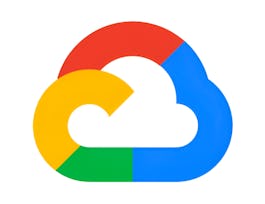This course will give you an insight into the formative years of “Korean” culture and thought and uncover together who were the earliest people we could describe as being “Korean.” Korea is unique, but not of a single origin. Through this course, you will rediscover “Korea” today as a unique linguistic-cultural continuum. And from this, you may gain a deeper understanding of yourself by acknowledging the various factors that have influenced you to form your mature identity.



In Search for the Origins of Korean Philosophy
This course is part of Korean Philosophy Essentials Specialization

Instructor: SO JEONG PARK
Sponsored by Coursera Learning Team
2,232 already enrolled
(17 reviews)
What you'll learn
Understand the terms ‘Name, Language, and Religion’ in the context of Korean identity
Have a solid understanding of previous names of Korea
Have a basic understanding of the early written language Koreans used (prior to Hangeul) and spoken Korean language
Be able to recognize the harmonious co-existence of Confucianism and Buddhism in Korea
Details to know

Add to your LinkedIn profile
6 assignments
See how employees at top companies are mastering in-demand skills

Build your subject-matter expertise
- Learn new concepts from industry experts
- Gain a foundational understanding of a subject or tool
- Develop job-relevant skills with hands-on projects
- Earn a shareable career certificate


Earn a career certificate
Add this credential to your LinkedIn profile, resume, or CV
Share it on social media and in your performance review

There are 6 modules in this course
This week, we will learn about the earliest written sources describing Koreans and through reading between the lines we glean insight into what those texts imply. We will also learn about ‘name, language, and religion’, and the importance of those terms in constructing an identity.
What's included
10 videos2 readings1 assignment1 discussion prompt
This week, we go more in depth about the importance of names. These names could be self-referential or a name someone else calls you and each hold meaning and implications that both aid in forming an identity.
What's included
6 videos1 reading1 assignment1 discussion prompt
This week, we go into detail about the intriguing difference between the early written language Koreans used (prior to Hangeul) and spoken Korean language. The gap between these two modes of communication as well as the gap between Hanja (Korea's version of Chinese Characters) and Classical Chinese is lectured on in detail.
What's included
8 videos1 reading1 assignment1 discussion prompt
This week, we will explore ancient Korean religion and culture prior to the entrance of the Three Teachings (Confucianism, Buddhism, and Daoism). To do so we will look at myths, archeology, and keep in mind Chinese records which discuss Korean culture and religion.
What's included
9 videos1 reading1 assignment1 discussion prompt
This week, keeping in mind the foundation of the prior weeks we will study how Korean thought and culture changed after accepting the Three Teachings. We will place special interest on how these teachings were transformed over time by Koreans into what we can call today ‘Korean Confucianism’ and ‘Korean Buddhism’.
What's included
7 videos1 reading1 assignment1 discussion prompt
This week, we learn and think about how the history covered in this course shaped and was shaped by Korean culture. We will place special interest on buddhist contributions to Korean spirituality and the intellectual landscape of Korea.
What's included
8 videos1 reading1 assignment1 peer review2 discussion prompts
Instructor

Offered by
Why people choose Coursera for their career




Recommended if you're interested in Arts and Humanities

Google Cloud

Google Cloud

National Taiwan University

Johns Hopkins University

Open new doors with Coursera Plus
Unlimited access to 10,000+ world-class courses, hands-on projects, and job-ready certificate programs - all included in your subscription
Advance your career with an online degree
Earn a degree from world-class universities - 100% online
Join over 3,400 global companies that choose Coursera for Business
Upskill your employees to excel in the digital economy


